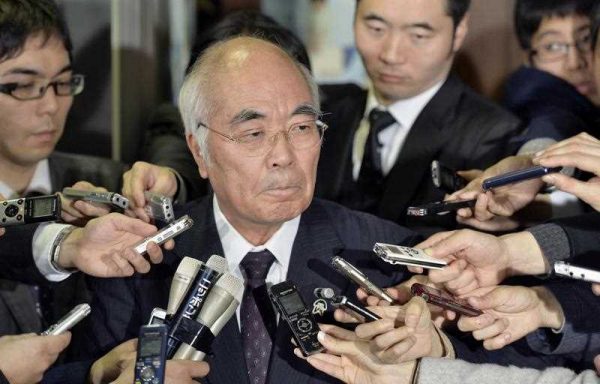The crux of the government’s recent program of JA reform was the abolition of JA-Zenchu’s authority to provide guidance to and audit the approximately 700 local cooperatives across the country. The government position was that these powers hindered local cooperatives’ free business activities and weakened the management capacity of JA executives.
The government learned from the defeat of the candidate endorsed by the ruling coalition, Keisuke Hiwatashi, by the JA-backed anti-reform candidate, Yoshinori Yamaguchi, in January’s gubernatorial election in Saga Prefecture. This time they pulled back from all-out confrontation with JA and refocused on their reforms on JA-Zenchu. The day after the Saga election, one of the government’s flag bearers for JA reform, Tomomi Inada, emphasised that the government’s confrontation with JA-Zenchu was not aimed at weakening regional JA organisations.
The prefectural central unions also came through the reforms with their auditing powers unscathed. Former Ministry of Agriculture, Forestry and Fisheries (MAFF) Minister Koya Nishikawa proposed to Chief Cabinet Secretary Yoshihide Suga, ‘Let’s divide JA-Zenchu and the prefectural central unions’. The reason for this was that the regional central unions are the ones actually connected to Diet members and support their election campaigns.
Delaying any possible changes to JA’s non-farming associate membership for five years also helped. Allowing the agricultural cooperatives to continue to serve these members will let the JA Group ‘maintain its business focus unchanged’. The bargain underpinning the final decision on JA reform in fact postponed of any decision on associate membership in exchange for abolishing JA-Zenchu’s authority to audit.
Despite wavering support from JA and concerns in the ruling Liberal Democratic Party (LDP) that the reform issue would cost the party votes, only limited evidence can be found that the issue of JA reform lost the LDP JA-linked votes in elections in those prefectures where JA members and their voting-age family members make up 40 per cent or more of eligible voters.
In Saga, hard feelings lingered from the battle over JA reform in January’s gubernatorial election. The prefectural farmers’ political league (nōseiren) chairman committed to scrutinising the stance of LDP Diet members from the prefecture on JA reform and the issue of the Trans-Pacific Partnership (TPP). Another member observed that the ‘emotional gap between JA executives [in the prefecture] and Diet members is deep’.
Local media also reported dissatisfaction with the government’s JA reform in other prefectures. According to a JA member in Gifu, ‘People are asking why we have to do that much for the LDP’. The official stance of the prefectural nōseiren was to support the LDP, but its power to mobilise votes was limited. While there were over 300,000 JA members in Gifu and 6000 members in the league, a JA executive admitted that farmers did not necessarily follow orders when it came to voting.
In Shizuoka, the prefectural nōseiren did not recommend two incumbent LDP prefectural assembly members, recommending an opposition Democratic Party of Japan (DPJ) member instead. A rumour spread that the JA might cancel all of its recommendations for LDP candidates depending on how the government approached JA reform.
In Miyazaki, one of the successful Japan Communist Party (JCP) candidates gained the support of farmers opposed to the government-led JA reform, capitalising on the JCP’s official stance of opposing the reforms. This is part of a broader trend in which the JCP is extending voter support beyond its traditional support base to farmers, medical professionals and office workers who are concerned about amendments to labour laws and any easing of regulations required by the TPP.
But in most cases the prefectural nōseiren backed LDP candidates, including for the position of governor. In Akita, the nōseiren spread the love around, recommending 25 LDP candidates, two DPJ candidates, one JCP and one Social Democratic Party candidate and 11 Independents. The league stated they were ‘reserving our criticism of JA reform and other aspects of the Abe administration for national elections, not prefectural assembly elections’. Its secretary-general nevertheless observed wryly that JA was caught either way: ‘If we don’t have [electoral] influence we are neglected; and if we do have influence, we are deemed to be a resistance force. We are caught in a dilemma’.
In Niigata, the nōseiren supported LDP candidates because the local LDP chapter had opposed the government’s JA reform. The league judged that it was important to recommend these LDP members in order to get JA’s views reflected in policies. The prefectural nōseiren made this decision, but it did not bind the local cooperatives.
Ten of those successfully elected in the local polls were former JA executives and staff members continuing the long tradition of direct JA representation in politics. Seven of these were LDP, with two Independents and one from the DPJ.
The really important issues in rural prefectures appeared to be population decline, regional revitalisation, economic measures, welfare, employment, disaster prevention and nuclear power plants. The prevailing view was that JA reform would not affect local agricultural cooperatives because it focused on JA-Zenchu. Local LDP representatives and national LDP Diet members (from the same prefecture) also took different positions on JA reform, so many felt it was the latter who should be watched with a view to the Upper House elections in July 2016.
The Abe administration’s ultimate goal is to refashion JA into a pro-farmer organisation instead of a group that puts its vested organisational interests first. Often, these interests are at the expense of increasing farmers’ incomes and making the agricultural sector more competitive. But critics in both the ruling and opposition parties have argued that the changes to JA ‘do not show a path that leads to increasing agricultural income’.
Aurelia George Mulgan is Professor at the University of New South Wales, Australian Defence Force Academy, Canberra.

